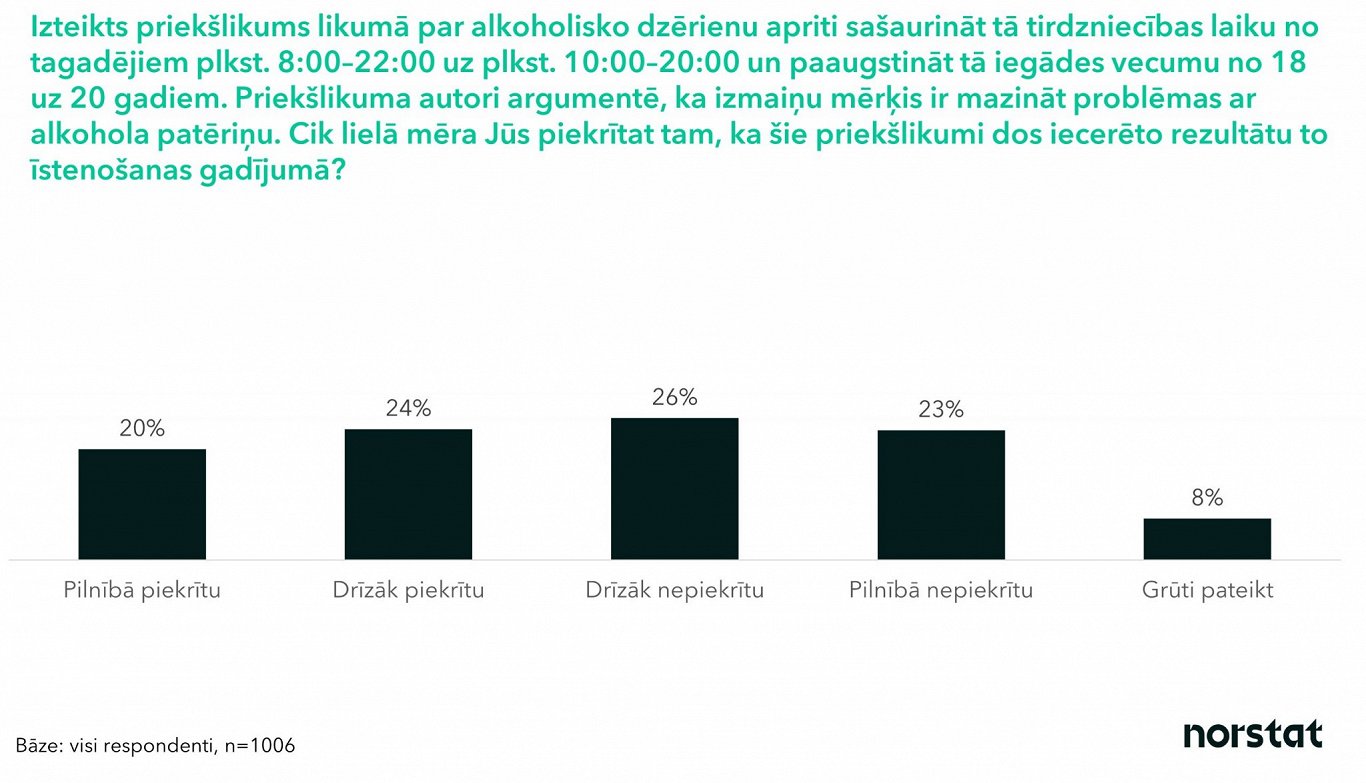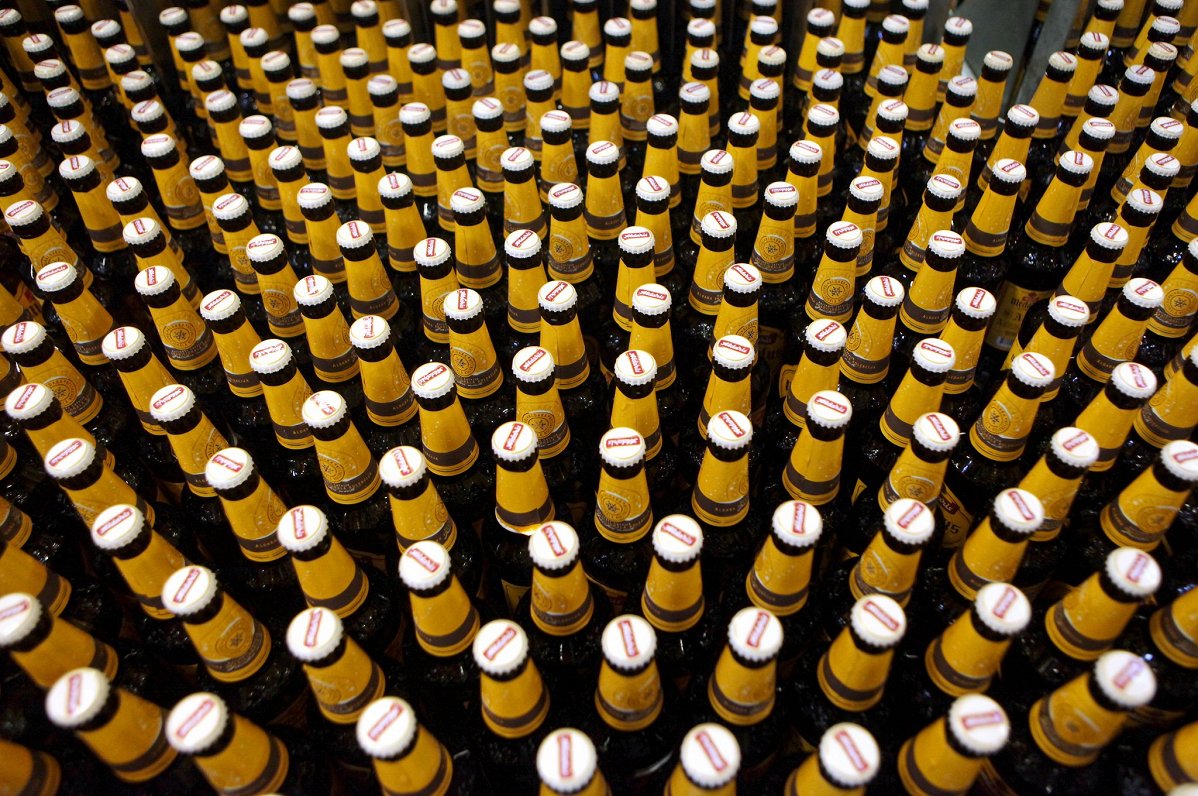The biggest discussion was about changes in working times, which had been discussed before in the Public Health Committee. The Commission today conceptually supported the proposal to ban the selling of alcohol on weekdays and Saturdays from 20:00 in the evening to 10:00 in the morning. There is also discussion ongoing on banning alcohol sales on weekends or on Sundays.
The Ministry of Economics, the Ministry of Agriculture and the Ministry of Finance generally do not support such strict restrictions on working hours, offering a compromise - to reduce the time for selling alcohol for one hour in the morning and one in the evening.
Deputy Ingūna Circene (New Unity) said these amendments are “the minimum of the minimum” so that the public does not drink itself to a point of no return.
“What are we talking about here at all, we're not banning the marketing of alcohol, we're trying a little bit to improve and contain. This is hypocrisy from those who care about the economy or trade,” the politician criticized, stressing that the discussion is not meaningful in nature.
MP Mairita Lūse (Progressives) stressed there was no way to reduce alcohol consumption without having a fiscal impact.
Deputy Ramona Petraviča (Latvia First) expressed support for the ministerial compromise proposal, which provides for a reduction of working hours by one hour in the morning and one evening. She believes no one has thought and evaluated why people drink. “Restrictions are easy to adopt, but they're just fiction and nothing else,” Petravica said.
A survey of residents conducted by LSM.lv and Norstar shows that a large proportion of people are skeptical that curbing alcohol sales by raising the age limit will reduce problems with alcohol consumption.
The survey was conducted in December 2023. 1,006 Latvian residents aged 18 and over participated in the survey.
Respondents were asked the question: a proposal was made in the Law on the circulation of alcoholic beverages to reduce its trading time from cuurent 8:00-22:00 to 10:00-20:00 and raise its purchase age from 18 to 20. The authors of the proposal argue that the change aims to alleviate problems with alcohol consumption. To what extent do you agree that these proposals will produce the desired result if they are implemented?
That the proposals would yield the expected result was fully agreed by 20%, rather agreed by 24%, rather disagreed by 26%, but completely disagreed by 23%. Another 8% of respondents found it difficult to respond.































